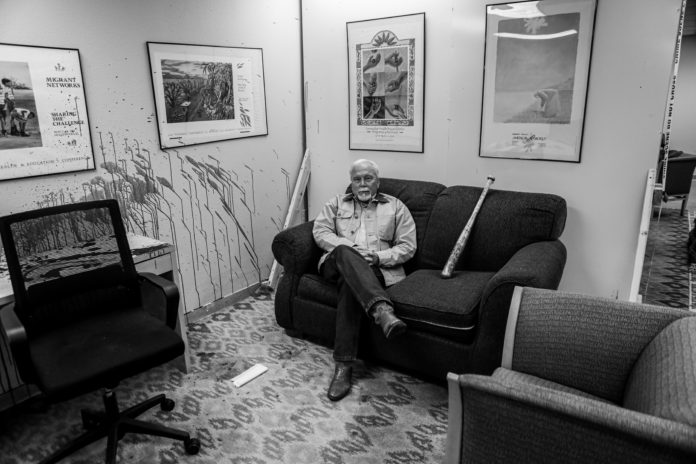
By Sarah Wang | Staff Writer
Although theoretical knowledge often works hand-in-hand with real-world practices, it is challenging for students in the field of forensics to get in touch with real crime scene investigations, acquire expertise and put what they have learned into practice. However, senior lecturer James Huggins bridges that gap by taking students to meet the real side of crimes in the classroom.
After more than 29 years of service at the Department of Public Safety, the former Texas Rangers sergeant retired from that group in 2011 and came to work at Baylor.
Throughout his 11 years at the university, Huggins has taught 10 undergraduate courses in forensic science and anthropology, as well as three independent upper- level studies, according to the Baylor website.
Huggins received a bachelor’s degree in biology from the University of Mary Hardin-Baylor in 1981. He said he first saw the need to enter the field of forensics while he was being trained as a forensic hypnotist, a polygraph examiner and a hostage negotiator.
“When I got to the area that I was in, which was fairly rural, I noticed that in order for the proper resources to be deployed there, you would have to make a phone call to a crime lab — somewhere that might be hours away,” Huggins said. “During that period of time, there were a lot of things happening in that scene that were either being contaminated or destroyed from an evidentiary perspective.”
Noticing there needed to be a staff improvement at crime scenes, Huggins took it upon himself to start training in forensics. He said he learned everything he could by attending training seminars and reading every book he could get his hands on — enjoying the field so much that he decided to get a degree in it.
“I was getting lots of calls, even from rangers in other areas, to come and assist with investigations because of the science side of my experience that I had, and I just became immersed in it,” Huggins said.
Huggins was offered the opportunity to come to Baylor and teach students in the field of forensics, showing them what he has done, what forensic science is and what mistakes have been made in the past in order to improve forensic science.
“It was a good opportunity for me,” Huggins said. “There were lots of young rangers coming in with new skills and new experiences. And over the course of between 29 and 30 years [of being a Texas Ranger], the types of cases that you work — as well as the hours and being on-call all the time — does cut into your family life.”
Preferring to be called “Sarge” by his students, Huggins said his Texas Rangers experience impacts his way of teaching. After students learn core concepts, techniques and skills, he brings the cases he has worked on for them to review in class. Students are then able to use the strategies they learned in class to recognize key information in a simple picture, such as how long a person has been dead, the cause of death or the weapon that was used.
“I bring everything that I’ve learned to class, whether it be from an educational standpoint or from an experience standpoint,” Huggins said. “I try to bring those experiences to class to show what has been successful for me as well as what hasn’t worked. I try to bring things and to make things as real- life as I can, since I can’t take students necessarily to a crime scene.”
Nolan Yard, office manager for the anthropology department, said he has worked with Huggins for more than three years and knows him as an instructor that gives his students hands-on experience and skills that are transferrable to the field.
Yard added that he appreciates the realness to Huggins and how he goes about daily instruction.
“What I like most about Professor Huggins is he’s a down-to-earth person who doesn’t sugarcoat things, and he has a deep commitment to the success of Baylor and its students,” Yard said.
Yard said Huggins’ background with the Texas Rangers makes him an expert instructor, and the fact that Huggins brings real crime scene investigations into his classroom is a testament to his effectiveness as an instructor and how valuable the student experience truly is.
“I try to show that not everything in this world is happening in the nice, safe confines of Baylor University,” Huggins said. “It’s happening outside. Real life is going on outside of the university, and that’s where crimes are.”





